Ensuring tourism gets back on course
What do you think about the potential of the hotel and resort market in Southeast Asia, and Vietnam in particular?
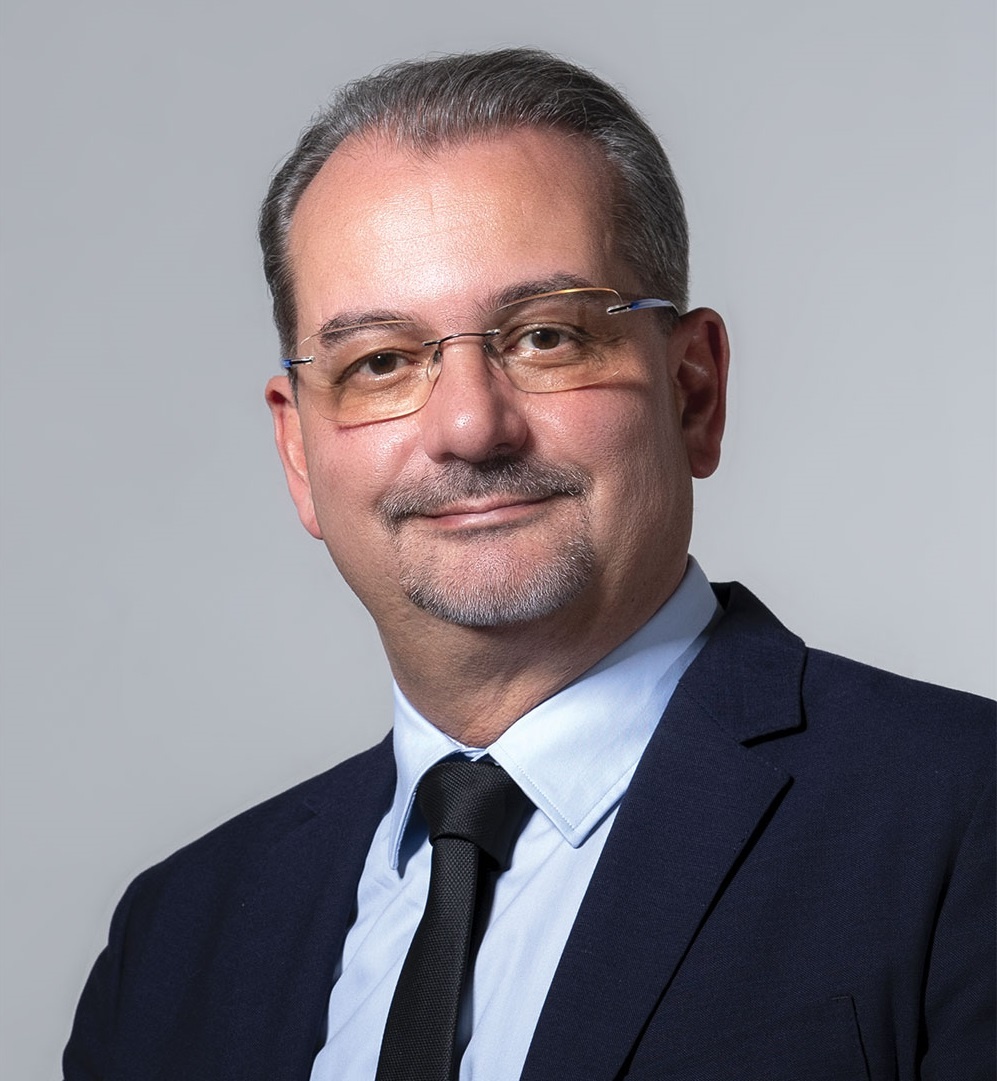 |
| Norbert Vas, vice president of Business Development at Archipelago International |
Most Southeast Asian markets are already recovering fast. For example, aggregated trading volumes covering our 156 hotels in Indonesia showed that December was a record month, exceeding pre-pandemic numbers. Vietnam, I am afraid to say, will take longer. City hotels in strategic locations are already doing well. Still, resorts will struggle for much longer, given that we depend too much on just a handful of source markets, especially Russia and China.
High-end business hotels in downtown Ho Chi Minh City and Hanoi are already doing very well. They have international business travellers as their main clientele, benefiting from pent-up demand. Business travellers who are keen to do business in Vietnam have long been forced to delay their trips, and they are now catching up all at once.
Leisure travel does not have this sort of pent-up demand, as leisure travellers are more flexible and have more choices regarding their destination. We see high demand from the leisure markets, driven by so-called “revenge tourism”, or people going on an unplanned extra holiday just because they can finally travel again.
However, most leisure travellers still focus on locations nearby their homes. We see many of our hotels that are within easy driving distance of a significant cosmopolitan area do very well now, even better than pre-covid, but those hotels that depend on overseas tourism still struggle.
Compared with Indonesia and Thailand, what are the outstanding advantages of Vietnam’s tourism-hotel sector to develop and attract foreign brands?
Indonesia has a domestic market of about 150 million tourists, and although Vietnam cannot reach that number, it will be the future of Vietnam’s tourism sector, especially when the middle class is growing rapidly and their travel needs are also increasing.
Certain aspects of Vietnam’s tourism industry have reached a point that Indonesia did ten years ago. What I mean by that is that budget airlines will proliferate, and domestic demand will grow exponentially. Simultaneously we will see rising demand for secondary and tertiary locations, both business and leisure, and a need for well-managed, branded, functional, and contemporary budget and mid-tier hotels.
Recently, Vietnamese investors have changed their minds. They focus more on the hotel business, are more selective in choosing a management unit to cooperate with, and also have higher expectations. Many investors are starting to get annoyed with senior management corporations because the costs are too high while the support is not as expected. International management groups in the high-end segment are quite strict in maintaining common standards.
If the investor has abundant financial potential and can build million-dollar hotels in the heart of Ho Chi Minh City, they will choose hotel management groups from the United States. As for hotels located in the area around Ho Chi Minh City, targeting the mid-range market in Asia, that is Archipelago’s opportunity.
From Archipelago’s experience after being here for a while, what are the big challenges for foreign hotel management brands looking for opportunities to expand in this market?
We are a leader in Southeast Asia’s mid-tier segment, have ushered in a budget hotel boom in Indonesia, and developed our 4-star ASTON brand to become a trusted household name in Indonesia and the Caribbean.
We enter the Vietnamese market at this time because the country has passed two peaks of tourism development and is at the third peak. Vietnam received an impressive number of international tourists before 2019, topping 18 million, not far behind Thailand’s 20 million. Vietnam also possesses huge potential to develop a considerable domestic market, similar to Indonesia.
Given that, regarding expected growth in Vietnam’s market and the need for quality accommodations in secondary and tertiary locations, we are a perfect fit as developers can benefit from our experience in these segments, owner-centric approach, and flexibility.
Of course, we must overcome our main challenge, which is that we are not known yet, at least not here. We were in the same situation in Indonesia. We overcame it through hard work, perseverance, and ultimately by delivering superior financial results for the hotel assets owners had entrusted us with.
I choose to enter this market because I have a personal affinity for Vietnam, having lived here about 18 years ago when I was opening one of the first international 5-star resorts in Hoi An. I love the energy, the entrepreneurial people, the cultural heritage, and its food, which in my humble opinion, is the best cuisine in all of Asia.
This year may be considered a difficult one for the tourism sector due to recessions and spending cuts. Is Archipelago still optimistic about the previously prepared plan, and will it increase its presence in new destinations in Vietnam, such as the northern mountainous region?
We see the time is perfect for us to enter Vietnam. Perhaps not so much for newly built hotels, even though there are still many viable projects on the way, but for rebranding and repositioning underperforming assets and for helping independent hotels to get out of the pandemic by offering them to hook up with our world-class distribution system which is leveraging the playing field for smaller independents competing with large chains.
We make no income ourselves other than from basic management fees, having an absolute zero-charge policy; we are also experienced asset managers. As such, we have to be frank and selective. If a hotel makes no commercial sense, we will tell the developer; if it does, we will offer to operate it.
We are not here to play a flag game like the big boys with aggressive key performance indicators and a need to create shareholder value. As of now, we are already proposing a fascinating mid-sized project up north, where we know that our experience in launching hill town resorts in Indonesia will be an excellent advantage for the hotel owner and us.
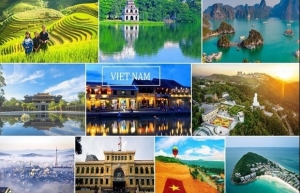 | Vietnam tops list of must-visit international destinations for 2023 Vietnam tops the list of the must-visit countries for a vacation in 2023, which was shared by Managing Director of Southern Travels of India Alapati Krishna Mohan. |
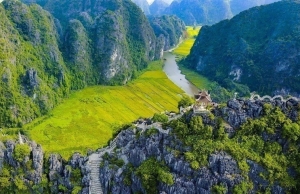 | Chinese tourism set to influence Vietnam’s targets The future of Vietnam’s tourist business is about to shift as China finally reduces the degree of pandemic control and opens its borders. |
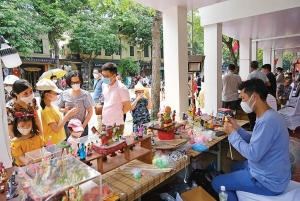 | Hanoi's tourism leaning towards meetings industry boost Hanoi's tourism sector is set to promote events industry tours in a bid to hail 22 million total visitors in 2023. |
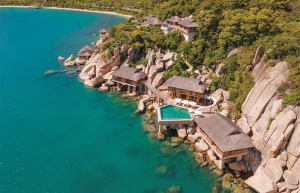 | Laying focus on sustainable tourism The total revenues of Vietnam’s tourism in 2022 was approximately $19.6 billion – nearly triple that of 2021 but only 60 per cent of 2019. Now, there is a clear imperative for tourism in Vietnam to both improve and become more sustainable. |
What the stars mean:
★ Poor ★ ★ Promising ★★★ Good ★★★★ Very good ★★★★★ Exceptional
Related Contents
Latest News
More News
- Visa data highlights five key payment and travel trends in Vietnam for 2026 (January 14, 2026 | 10:42)
- New Year tourism receipts top $40m in key cities (January 06, 2026 | 08:36)
- Vietnamese passport climbs on global ranking (December 16, 2025 | 08:00)
- Manila becomes a new check-in destination for Vietnamese youth (December 11, 2025 | 18:07)
- Vietjet launches mega year-end ticket promotion (December 10, 2025 | 11:33)
- Dalat leads Vietnam’s 2025 search trends (December 09, 2025 | 13:44)
- Vietnam welcomes record wave of international visitors (December 09, 2025 | 13:43)
- Vietjet launches daily Manila flights to celebrate year-end festive peak season (December 05, 2025 | 13:47)
- The destinations powering Vietnam’s festive season travel demand (December 04, 2025 | 18:33)
- Vietnam named among the world’s most exciting winter destinations (December 04, 2025 | 15:10)

 Tag:
Tag:


















 Mobile Version
Mobile Version